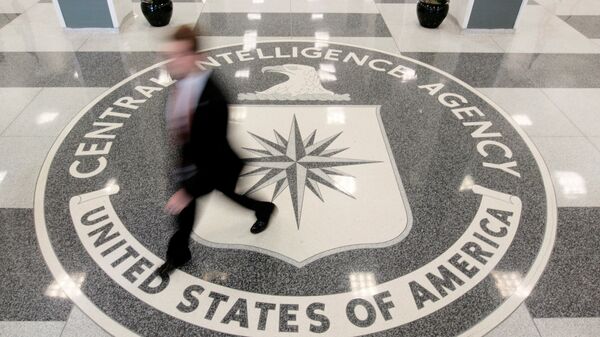The CIA premiered their games last year at SXSW, where four Agency officers took part in a panel discussion to explain how and why they had developed their own in-house versions of Dungeons and Dragons. One called Collection Deck is a collectible card game focused on intelligence gathering. Another titled simply Collection sees a team of players pitched against three simultaneous global crises which they have to try to resolve or mitigate.
While a handful of SXSW attendees were allowed to play some of the games last year, they only recently became publicly available after MuckRock members Mitchell Kotler and Douglas Palmer obtained some of them via FOIA requests.
El Chapo: The Board Game
For Kingpin: The Hunt for El Chapo the CIA released over 100 pages of playing cards, diagrams of how to lay out a room for a game, gametest notes and instruction manuals on how to play. The complex game pits two teams against each other as one tries to find El Chapo and the other tries to keep him hidden while building up his narcotics empire.
The rules of play explain that, "The Hunters win the instant that they Finish (capture) El Chapo" or if after eight turns the Cartel has fulfilled less than half of the ‘needs' demanded by their drugs empire and by the Kingpin himself. The Cartel wins "if Chapo remains free (not Finished) for 8 turns" and they have fulfilled at least half of the needs.
Amusingly, the Cartel's needs (called ‘vices' in earlier versions of the game) read like a storyboard for an unfinished season of Narcos. They include assassinating a rival cartel leader, building meth labs, laundering profits and spreading largesse. El Chapo's personal needs include using prostitutes, visiting his mother and composing a Narco corrido, a song that describes and glorifies the drug business.
Training Aides?
While Kingpin was designed to train CIA analysts in "the manhunting methodology in the context of a highly sophisticated manhunt for a highly sophisticated target" the game is in some ways profoundly unrealistic. While El Chapo's and the Sinaloa cartel's corruption of Mexican police and intelligence officials was incorporated into the game, his relationship with elements of the US government was not.
Indeed, at the panel at SXSW the participants admitted they have no data on the effectiveness of these games in training the CIA's intelligence analysts. Likewise, the training modules in the released documents list the key objective as "Execute simulated hunting and evasion strategies in a tabletop model" i.e. learn to play the game itself rather than anything useful for their jobs.
Adding to the sense that these games are not particularly effective tools for training analysts, CIA officer Rachel Grunspan highlighted the problem of "emergent behaviour" in the teams. She described one game where an IT staffer was hired to maintain a large touchscreen depicting a global map that both the red team and the blue team were using. Unexpectedly, the blue team won and in the debrief it emerged that they had recruited the IT guy to spy on what the red team were planning. In another example, an irritating team member caused his team-mates to have him killed within the game so they didn't have to deal with him.
Or a PR Opportunity?
The choice of El Chapo as a subject suggests that the CIA are promoting their use of board games as a means to get some positive PR for the agency. Sputnik spoke with journalist Guillermo Jimenez, who suggested that "El Chapo is both vitally important and utterly insignificant" because his capture in 2014, and subsequent escape and re-capture, have made little difference on the ground but are often portrayed as a key victory in the drug war.
The CIA are using this ‘lightning rod' effect to help draw attention to their development of boards games and wider involvement in nerd culture. They have also promoted one of their intelligence analysis trainers Volko Ruhnke who is also a producer of commercial board games, and invited comic book creator Brian Michael Bendis to give a talk at Langley.
Sputnik spoke with comic book expert Ryan Carey about why the CIA have started embracing nerd culture. Carey called the relationship a "two-way street" and observed, "A lot of today's fresh-faced CIA recruits were nerds growing up, and maintain those interests today. This was the case with comics fan-turned-CIA agent-turned-comics freelancer Tom King."
Carey also highlighted the recruitment possibilities, as "Things the CIA looks for such as strategic ability, creative thinking in difficult situations, logistic planning — the are big in various forms of nerd culture… So the kinds of things so-called ‘nerds' develop an aptitude for early are the sorts of skills the CIA values."
Sputnik asked Carey why the CIA appear to be broadcasting their intentions to integrate themselves into nerd culture. He replied, "Why not? How many kids are going to be extra-excited to try out a new game if they know the CIA is interested? A CIA seal of approval, so to speak, most likely means more sales for a game."




